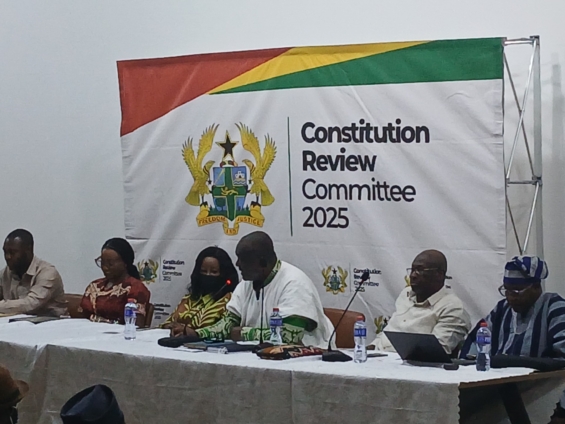The Constitutional Review Committee (CRC) has received over 600 memoranda from individuals and organisations, Chairman Professor Henry Kwasi Prempeh has disclosed.
Speaking at a Zonal Stakeholders Engagement in Accra (Zone 6), Prof Prempeh said the CRC was classifying the submissions for deliberation.
He noted that proposals received included advocacy on secession, election of Metropolitan, Municipal, and District Chief Executives (MMDCEs), gender representation, presidential age limits, and reforms to strengthen Ghana’s National Development Plan.
The CRC, constituted in January 2025 by President John Dramani Mahama, is tasked with soliciting public views on potential amendments to the 1992 Constitution.
Prof Prempeh said other submissions addressed presidential powers, vacancies during presidential travel, taxation of presidential salaries, and appointments and dismissals of key state officials including the Inspector General of Police and Chief Justice. Concerns were also raised about Article 71 office holders and indiscipline in the education system.
He urged the public to contribute further perspectives, stating, “We are carrying on with the 2011 processes and bring final resolution so the country would move forwards with the reforms.”
Prof Prempeh said the CRC’s mandate is to engage in an inclusive and participatory process, reflecting on developments since 2010, including election petitions, a hung parliament, and sovereign default.
“We must address challenges of these issues going forward. Some might have a change of mind, looking at these issues,” he said, adding that the committee must also consider the concerns of the “social media generations.”
He said the CRC began its work by engaging institutions, civil society organisations, and experts across thematic areas such as elections, anti-corruption, public finance, natural resources, and local governance.
Special interest groups including academia and faith-based organisations have also been consulted.
Prof Prempeh announced that the CRC would soon engage the National House of Chiefs and the Council of State.
“Nothing is off the table, our mandate is open ended. There is nothing that you cannot speak about as long as it relates to the Constitution.
“We are looking for solutions to problems. This is a problem-solving exercise, so feel free to speak your mind,” he said.
Some attendees expressed concern over electoral violence and proposed that political parties nominate replacement candidates in by-elections to avoid bloodshed and reduce costs.
Others suggested reviewing laws to ensure the President pays taxes on their salary.
The meeting brought together representatives from the security services, the Federation of Persons with Disabilities, traditional leaders, assembly members, and students.
GNA





